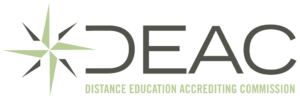The quality of education hinges on the effectiveness of educators in the classroom. But how do we ensure teachers are constantly honing their skills and delivering instruction that meets high standards? This is where instructional supervision comes in – a crucial yet often under-appreciated aspect of the educational landscape.
In this article, we discuss the crucial role of instructional supervision in enhancing teaching standards and fostering professional growth among educators.
What is Instructional Supervision?
It’s not about evaluation or punishment but rather a collaborative effort between teachers and instructional supervisors (often referred to as coaches or mentors) aimed at continuous improvement.
How Does Instructional Supervision Elevate Teaching Standards?
Effective instructional supervision offers a multitude of benefits for educators and students alike:
- Professional Development: Supervisors can identify areas where teachers excel and areas for growth. This targeted feedback allows teachers to focus their professional development efforts on the most impactful strategies.
- Reflective Practice: Through classroom observations and discussions, supervisors encourage teachers to critically analyze their teaching methods and student outcomes. This reflection fosters continuous learning and adaptation.
- Alignment with Standards: Supervisors ensure teachers deliver instruction that aligns with curriculum standards and learning objectives. This standardized approach helps guarantee all students receive a quality education.
- Effective Instructional Strategies: Supervisors can introduce teachers to new and effective instructional strategies, like differentiated instruction or technology integration.
- Improved Student Learning: By supporting and developing teachers, instructional supervision ultimately leads to improved student learning outcomes. Students benefit from engaging lessons, clear expectations, and strong teacher-student relationships.
The Role of Online Certificate Programs
The field of education is constantly evolving, and instructional supervisors need to stay abreast of the latest research and best practices. Online certificate programs in Education offer a convenient and flexible way for supervisors to enhance their skills and knowledge.
These programs cover a wide range of topics relevant to instructional supervision, including:
- Observation and feedback techniques
- Effective classroom management strategies
- Process and principles of curriculum design & assessment
- Instructional design and delivery
- Data analysis for instructional decision-making
- Effective teaching strategies for special education, ESL, etc
By pursuing online courses, supervisors can gain valuable expertise to better support teachers and ultimately contribute to a more effective learning environment for all students.
Building a Culture of Continuous Improvement
Instructional supervision is most effective when it’s a collaborative and ongoing process. Developing a culture of continuous improvement requires not only skilled supervisors but also a supportive school administration that prioritizes professional development for its educators.
Through strong partnerships and a commitment to ongoing learning, instructional supervision can truly become a key player in elevating teaching standards and ensuring all students reach their full potential.














